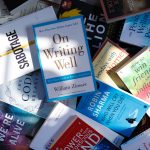READ ON TO DISCOVER:
- Why the elasticity of time gives us more control
- The question to ask before scheduling your next meeting
- How Laura Vanderkam has found time to run every day since 2016
Laura Vanderkam is the bestselling author of multiple books on productivity and time management, including I Know How She Does It, 168 Hours, and What the Most Successful People Do Before Breakfast. Laura recently sat down with world-renowned business thinker Whitney Johnson, author of Build an A-Team and host of the Disrupt Yourself podcast, to discuss the ways that we have more control over our time than we think.
This conversation has been edited and condensed. To listen to Laura and Whitney’s full conversation, click here.
Whitney: I suspect that you did not go to school to study time management, while you were at Princeton. What was the plan when you started college?
Laura: I’ve always been interested in writing, so that has been a constant through my life. When I went to Princeton those many years ago, I was thinking I would probably go into journalism. I did summer internships in the journalism business and freelanced for area publications, as a way to make spending money while I was in school. I did a year-long internship at USA Today, right out of college, but quickly learned that freelancing was more secure in its own way and definitely paid better than most in-house journalism jobs. So I’ve been out on my own since a year after school.
Whitney: You discovered that freelancing was more secure than a regular gig? Say more about that.
Laura: It does seem a little bit paradoxical that if you’re not getting a paycheck every two weeks, you’re more secure. But the truth is that any job can end, and when you have multiple streams of income, you are cushioned against that in a way that you aren’t when you have one job. I realized that I had tripled my intern salary through freelancing, which suggested to me that it was probably going to work.
Whitney: When did you hit upon this idea of time management?
Trending: 5 Reasons Life Gets Better After Your 40s
Laura: I’d always had an interest in productivity. I [would] read books like The 7 Habits of Highly Effective People and had seen my own attempts to be more productive when I’d come up against various challenges in my academic career. The real impetus for it, though, was when I had my first kid in 2007. There are certain dire warnings about [parenthood]: “You’ll never sleep. You’ll never see your friends. If you attempt to build your career at the same time as you’re raising children, you’ll be in a hairy mess.”
I wondered, “Well, is that true?” I certainly hoped it wouldn’t be true, because I was attempting to build my life, my career, and raise my kids at the same time. So I started looking at how people spent their time. I came across a bunch of time diary studies and found some counterintuitive findings—one is that mothers spend more time interacting with their children now than they did in the 1950s and 60s. That is fascinating in the sense that there are far more women who are working for pay now than [there] were then. People think that work and childcare are inevitable trade-offs, but they’re not, because women do more than just those two things in their lives. So it wound up being housework that women stopped doing.
I took that nugget of an idea, and it went through many versions before it became my first book. Finally I got a meeting with the folks at Portfolio, and they looked at this mass of material and said, “This idea on how people spend their 168 hours in a week might make a good book.” Then I wrote a quick proposal, and they bought it. Once you write one book on a topic, you become known for it.
Whitney: What is meaningful to you about that book?
Laura: I think what was meaningful to me was feeling like I was writing something that would be helpful to people, but that would also challenge a lot of [existing] narratives out there that say we don’t have time for doing things in all spheres of life. You have more time than you think you do. If you read this book and are open to the message, it can change your life, because many of us walk around with this narrative in our heads that, “Oh, I’m so busy. Oh, I never have time for anything.” This book will lay out in numbers that that is not the case. By showing people how to invest their time in the things that are important to them, they do best both at work and at home.
Whitney: I’d love to have you give us a couple of tips or pointers around time management, from 168 Hours and [your more recent book]. One of the promises of the book is that we will know how to clear our calendars of activities that are boring, stressful, or just not the best use of our time. Could you give us tips around that?
Laura: Many of us fall into this temptation of filling time just because time is there to be filled. So, when somebody asks for a meeting, people are often looking at their calendar to see, is that time open, or is there another time I should suggest? They’re not asking, “Well, is this the best use of my time?” Open space invites opportunity into our lives in a way that a cluttered calendar just can’t. I think being very judicious with the word “yes” as you are scheduling things is very important.
I have people do a “time amnesty,” looking at everything that’s [going on] in your life and asking, “If my schedule was blank, would I add this to my life?” If the answer is no, ask [yourself] how you could start winding it down over the next few months. Get yourself free of those things to be more accepting of open space. Having open space doesn’t mean that you don’t have a lot to get done. If we value being busy as a sign that we’re important, then you accept things that you wouldn’t if you’re walking around with this idea that, “Actually, I want a lot of open space, because I’m going to do amazing things with it.”
“Open space invites opportunity into our lives in a way that a cluttered calendar just can’t.”
Whitney: It’s a really interesting observation that you’ve made—this idea of “I’m busy, therefore I am.” I was on the phone earlier today and someone said, “Can we set some time?” And I didn’t pause and [think], “Is this even a meeting that it makes sense to have?” If I’m hearing you correctly, that’s what you’re saying to do—just pause and decide, is it even a meeting that you should be taking?
Laura: That’s the first question to ask. One way you can back into it is by asking yourself if you [would] do whatever it is that somebody is asking you to do tomorrow. Because tomorrow we have that sense of, “Oh, my time is valuable. It’s full already with all this stuff. Do I really want to add one more thing?” Whereas if it’s further in the future, things aren’t as booked up at that point, so you’re more likely to say yes because it seems like somehow you’ll be less busy. Ask yourself if you would do this thing tomorrow, and if the answer is absolutely not, then perhaps that should be the answer for the future as well.

Whitney: That’s such great advice. The next premise of the book is how tackling your top priorities during the hours when you have the most energy will change your perception of what it means to be productive. Tell me more about that.
Trending: 5 Simple Strategies for Persuading Anybody
Laura: I did a time diary study where I had 900 busy people, with full time jobs and full personal lives, track their time for a day. I asked them all these questions about how they felt about their time. Then I assigned scores to the people who felt like they had the most time, and people who felt like they had the least time. We all have the same amount of time, but some people feel like they’re more relaxed about it than others. It’s probably not surprising that people who felt the most relaxed worked slightly less than the people who did not. But it was only about an hour difference—everyone was working within this full time range.
I thought, “Well, if people are a bit more focused about what they’re doing, [they] can often work an hour less in the day and still get the same amount done.” They have planned for their energies, booking in the things that take a lot of energy during the time when they have it, which for most people is the morning. Then you start doing all your meetings and phone calls and the things that require a little bit less energy, proactively building in breaks so you don’t wind up going down some internet rabbit hole for an hour in the afternoon because you’re frazzled and that’s what your brain will let you do.
You can actually get out earlier. And it’s not that you’re doing anything less—it’s that your work is more planned and focused, and you’ve built in breaks where you need a break. The day is intentional, and then it can fit within a certain quantity of time, instead of continuing on because it’s 6:00 and you haven’t gotten to that one thing that you really needed to do.
Whitney: Will you tell the story about the water heater?
Laura: I’ve had thousands of people track their time for me over the years. I remember this one very busy woman who comes home [Wednesday night] to find that her water heater has broken, and there is water all over her basement. She’s got the plumber coming in, she’s got a professional cleaning crew… all of this is being recorded on her time log. It takes about seven hours of her week.
If you think about a lot of the time management literature that we read, it’s all structured on this idea of finding an extra hour in the day. This woman found an extra hour in the day all seven days that week. If we’d asked at the start of the week, “Could you find seven hours to train for a triathlon, or find seven hours to actually set up those seven coffee dates with the seven people who are asking you to mentor them at work?” You would be like, “No. I cannot find time for those things. Look how busy I am.” But when she had to find seven hours in her schedule, she did.
The takeaway from this is that time is elastic. We can’t actually make more time, but time seems to stretch to accommodate whatever we need or want to put into it. And so I challenge people to think about whatever is important to them, treat their priorities as the equivalent of that broken water heater. We might surprise ourselves with how we would be able to find that time if we really needed to. Tell yourself you need to.

Whitney: Is there something that you’ve made time for because of this observation?
Laura: I’ve noticed this happening naturally in my own life. One of the things I’ve chosen to do is to run every day. I’ve run every day since late 2016. Pretty much any day can accommodate a run. Sometimes I only run one mile because, that’s 10 minutes. But then, I would be pretty silly to say, “I cannot find 10 minutes anywhere in my life to run on any given day.” So it turns out that I have been able to find 10 minutes on any given day.
Trending: 40 Nonfiction Books to Look Out for in 2024
Whitney: Wow. Who can’t find 10 minutes?
We talked a little bit earlier about [the topic of] your upcoming book—how to linger in great experiences while they’re happening, and why good memories seem to make time expand.
Laura: You can learn to stretch the experience of time when you have something really awesome that is happening. We can learn to linger in a really good thing. You do certain things to make the experience more intense, to commemorate it afterwards so that you have this memory that then fills up more mental space and make time seem more rich and full.
“We can learn to linger in a really good thing. You do certain things to make the experience more intense, to commemorate it afterwards so that you have this memory that then fills up more mental space and make time seem more rich and full.”
Whitney: What might that look like? Can you give us a practical example?
Laura: I sing in my church choir, and we have a fabulous professional alto soloist who was going to sing during a church service. I knew this was coming up—I thought about listening to it as a priority for the week, and I looked at the music beforehand to refresh it for myself. When it was happening, I made sure to be paying full attention to it, really absorbing the sound as she was singing it. There are all these things [that go into] making this four-minute piece of music take far more than four minutes in my mind. That’s what I mean by lingering in an experience—you can make it seem bigger.
Whitney: That’s beautiful. By emphasizing [these moments], memorializing them, they take an expanded percentage of your brain, which is really powerful and positive. All right, last question for you: What do you want your children to learn about time?
Laura: What is cool about time is how much control we have over it. I mean, there’s plenty of things in life that you can’t control, and I certainly don’t want to minimize anyone’s struggle if you’re dealing with illnesses, job loss, disabilities, and difficult family situations. There are all kinds of horrible things that we just cannot control, but there is still so much of life that we can. I really hope my kids will learn the skill of envisioning the life you want in the future. I hope they learn to think about what would make them feel happy, really think about what steps it might require to get there, and then hold themselves accountable for achieving those dreams.
Ready for more big ideas like this? Join the Next Big Idea Club today!





























